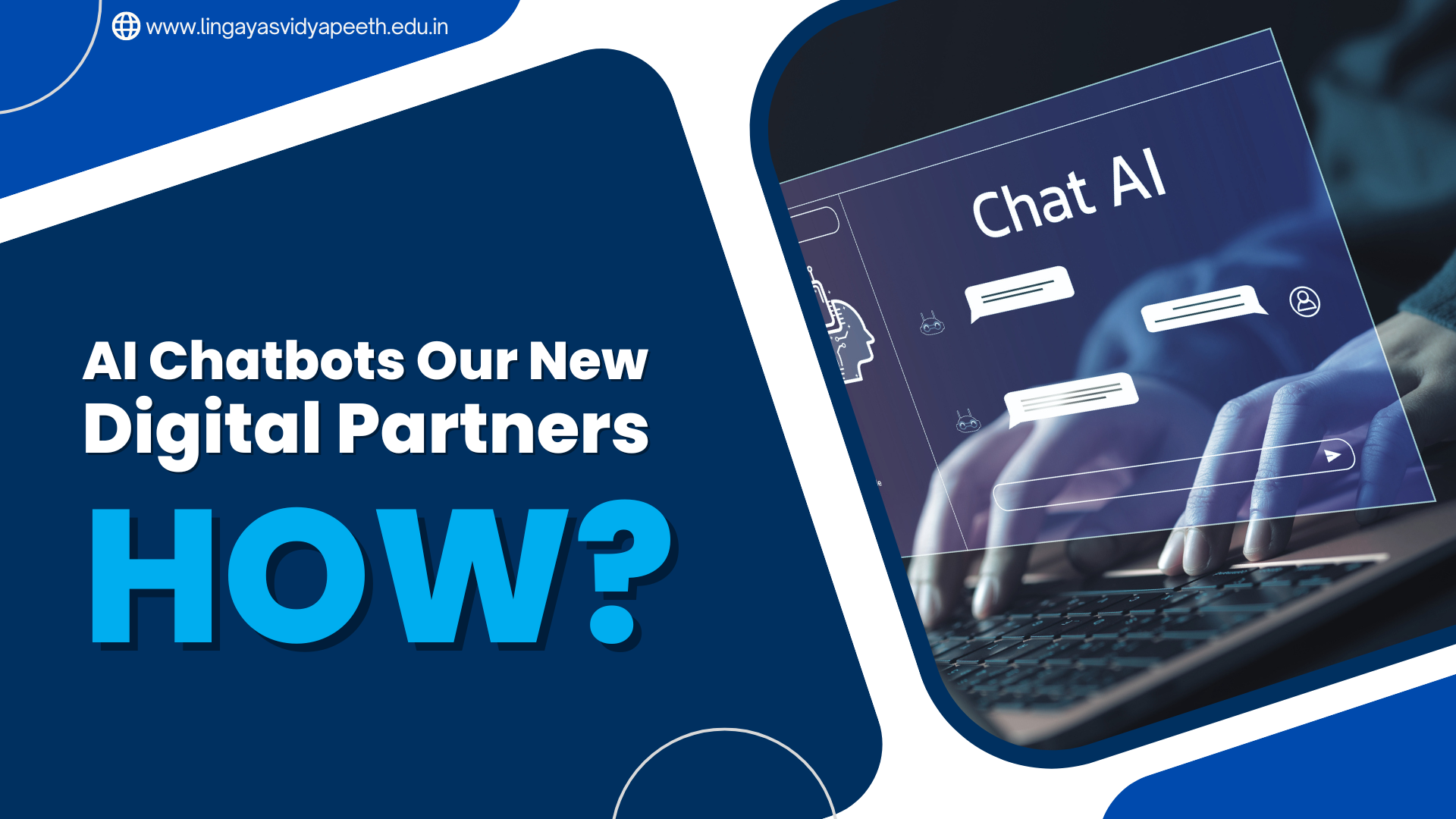Home » How are AI Chatbots Becoming our Digital Companions?

An AI chatbot, or conversational AI, is a computer program created to mimic human conversation through text or voice interactions. These intelligent systems use natural language processing (NLP) and machine learning (ML) to understand and respond to user queries in a way that feels natural and engaging.
AI chatbots have found applications in several industries, including:
Top 10 Essential AI Tools for Computer Science Students
As AI technology develops, we should anticipate seeing chatbots that are ever more intelligent and powerful. Future developments may include:
In conclusion, AI chatbots are a constantly evolving technology with the potential to revolutionize the way we interact with computers. As they become more sophisticated and capable, they will play an increasingly important role in our daily lives.
Are you passionate about AI and ML? Pursue BTech in AIML for the best learning experience in Delhi NCR. Lingaya’s Vidyapeeth is top university in Delhi NCR that equips students with skills and practical experience needed to excel in the rapidly evolving field of AI. With state-of-the-art facilities and various projects and internships, preparing you for successful careers in AI-driven industries.
From
Dr. Manisha Vashisht
Assistant. Professor
School of Engineering
Lingaya’s Vidyapeeth
Top Colleges in Delhi NCR for B.Tech AIML
RECENT POSTS
CATEGORIES
TAGS
Agriculture Agriculture future AI Architecture artificial intelligence Bachelor of Commerce BA English BA Psychology BTech AIML BTech CSE BTech cybersecurity BTech Engineering Business management career Career-Specific Education career guide career option career scope Civil engineering commerce and management Computer Science Computer science engineering Data science degree education Engineering Engineering students English Literature english program Fashion Design Fashion design course Higher Education Journalism journalism and mass communication law Law career Machine Learning mathematics MBA MBA specialization Mechanical Engineering Pharmacy Psychology Research and Development students
Nachauli, Jasana Road, Faridabad, Haryana
Address: C-72, Second Floor, Shivalik, Near Malviya Nagar,
Above HDFC Bank, New Delhi 110017
Landline No. - 011-46570515 / 45138169 / 41755703
Mobile No. - +91-7303152412 / +91-7303152420 / +91-9311321952
Toll Free: 1800-120-4613
Mobile : 8447744303 | 8447744304 | 8447744306 | 8447744309
8700003974 | 8700003411 | 8700003749
Copyrights © 1998 - 2026 Lingaya's Vidyapeeth (Deemed To Be University). All rights reserved.
LV only conducts physical/online verification of any document related to examination on the following email id:
It is important to note that the following email IDs and domains are fraudulent and do not belong to our university.